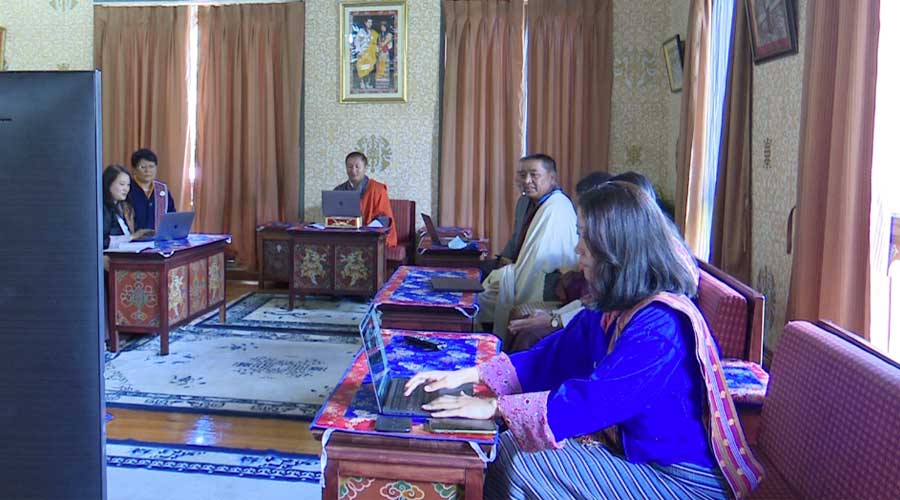
On average, at least one child or a young person faced either sexual or physical or emotional violence every 42 hours from 2018 until now. This is as per the data from the National Commission for Women and Children (NCWC) and civil society organisations like the RENEW and the Nazhoen Lamtoen. To address the barriers, preventing children and youth from seeking protection services, a multi-sectoral campaign to end violence against children was unveiled in the capital today.
Led by the NCWC, 14 governmental and non-governmental agencies will soon kick-start the campaign in Thimphu, Trashigang and Samtse on a pilot basis.
These three districts have been chosen, taking into account the high number of children and youth population, and the prevalence of violence against them.
However, the campaign will be widespread in the remaining districts over the next six months.
As part of the campaign, the district’s women and child committee along with the stakeholders will sensitise people on sexual, online and peer violence.
They will be familiarised with how to protect their children, ask for help from the service providers and successfully reintegrate their children into society.
The Foreign Minister, who is also the chairperson of the NCWC, said this campaign to end violence against children is a timely intervention.
“Six out of 10 children experience physical violence, 12 per cent experienced sexual violence and 50 per cent of our children experience emotional violence irrespective of being a Buddhist country with the development philosophy of GNH,” remarked Lyonpo Dr Tandi Dorji.
The minister further commented that the cases of sexual violence against children are ticking upward despite stricter laws and punishments.
The NCWC said over the past four and a half years, the country saw close to 1,000 cases of violence against children. However, they anticipate there could be many unreported cases.
“68 per cent of the 970 survivors were females. While these figures are indeed alarming, we must also acknowledge that these are only reported cases,” pointed out the UNICEF Bhutan Representative, Dr Will Parks.
Children affected by sexual, physical and emotional violence will also face adversity in shaping their personalities.
“Children, who have been abused or neglected, experience learning difficulties. They may have low self-esteem or suffer from depression, which can lead to risky behaviour and self-harm. Witnessing violence can cause similar distress,” reiterated Dr Will Parks.
According to the NCWC’s study, parents, dependent on drugs and alcohol are the primary causes of violence against children.
“There are a lot of interventions that need to be carried out, especially on the social and behavioural change. That is why we need to have a collaborative effort to end the violence against children. We will ensure that our intervention is conveyed as a package for all the stakeholders,” said Kinley Dorji, a Senior Programme Officer with the NCWC.
To complement such campaigns, it is of foremost importance for every individual to raise their voice, and create a safe and harmonious environment for the children to live in.
Pema Seldon Tshering
Edited by Pema Lhaden







